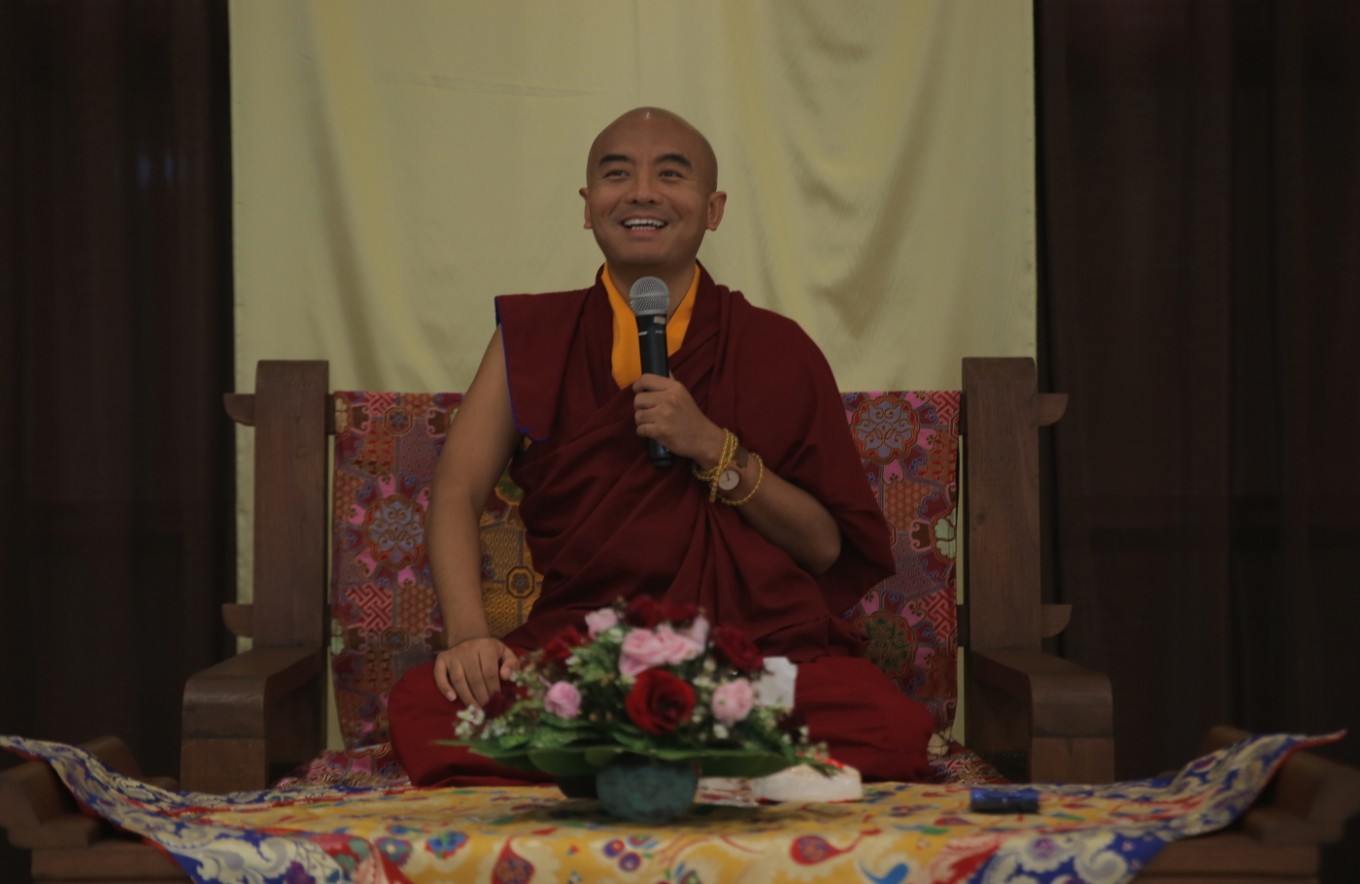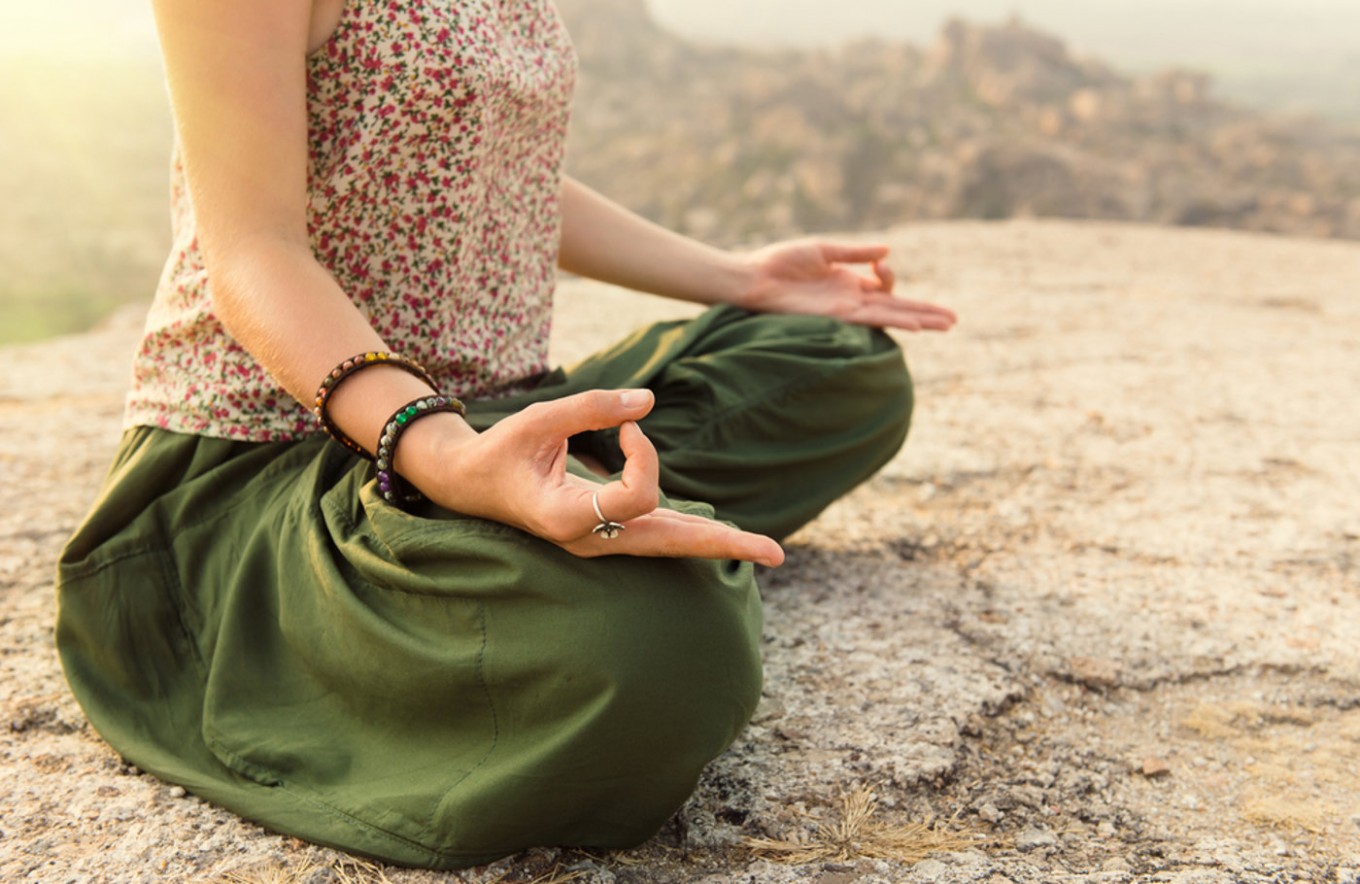Popular Reads
Top Results
Can't find what you're looking for?
View all search resultsPopular Reads
Top Results
Can't find what you're looking for?
View all search resultsSeeking true happiness through meditation
Meditation is more than just a practice to calm the mind.
Change text size
Gift Premium Articles
to Anyone
M
editation is more than just a practice to calm the mind. It can also turn obstacles into opportunities, find solutions for a problem and transform suffering into happiness, said meditation master and best-selling author Yongey Mingyur Rinpoche during a teaching tour in Jakarta.
His "Joy of Living" meditation practices, which acknowledged that everyone has the potential to find true happiness, consists of three levels: calming the mind, opening the heart for love and compassion and awakening wisdom.
“The point of 'Joy of Living' is to recognize our basic goodness, such as our potential, capacity and good qualities,” said Rinpoche. “We have wisdom, love, compassion, capability, skill and power within us. We are smarter than we believe. We are more capable than we think of. We are kinder than we used to know about ourselves.”
The practice is one of the programs being offered at the Tergar Meditation Center community led by Rinpoche.
The basic level teaches meditators that using, recognizing and developing awareness can be the source of happiness and peace. One of the meditative techniques for this level is breathing meditation where participants need only to sit down comfortably, close their eyes and count their breathes for as little as five minutes.
 Born in the Himalayan border area between Tibet and Nepal, Yongey Mingyur Rinpoche has taught meditation since age 17. (JP/Bayu Widhiatmoko)
Born in the Himalayan border area between Tibet and Nepal, Yongey Mingyur Rinpoche has taught meditation since age 17. (JP/Bayu Widhiatmoko)
“When you were counting your breath, did you see many thoughts [on your mind]?” asked Rinpoche to the participants as they all nodded in response. “Many people think the meaning of meditation is thinking about nothing, not thinking too much, clearing your mind… it is a misunderstanding about meditation.” He added that it was considered normal if meditators forget to count their breath as they can always come back again.
When your mind seems to be busy with worries and endless thoughts, Rinpoche called it 'monkey mind'. You cannot just ask the monkey to stop or resist as it will become worse. Therefore, the way to 'befriend' it is by meditating.
He suggested that beginners not force themselves, saying they only need to meditate for five minutes. “If you feel good, you can add more time,” he said. “It doesn't matter whether it is short or long, the quality is more important. Five minutes for 22-23 days and you can build a habit.”
(Read also: Meditation can be practiced anywhere, anytime)
Meditation consists of two types; the first one is formal meditation where it is done by sitting on a chair or anywhere that is comfortable. If you have back pains, you can use a small pillow to support your body. “And keep your mind straight, relax your body and don’t watch TV or use a smartphone,” said Rinpoche.
The second type is informal meditation where you do not need to sit and can meditate while you are having a meeting, doing your job, watching TV or carrying out other activities because it is simply about focusing on your breath. “But it cannot be done for long; only one or two breaths,” he said.
Born in the Himalayan border area between Tibet and Nepal, Yongey Mingyur Rinpoche is said to be the youngest retreat teacher at the Sherab Ling monastery in Northern India. He has also been labelled as ‘the happiest man in the world’.
Interestingly, during his younger days, he was said to suffer from panic attack and laziness. "I like the idea of meditation, but I was too lazy to do it," he laughed. "Meditation helps me and has saved my life, so I'm really passionate to share it."
After four-and-a-half years of retreat near the Himalayas, Rinpoche returned to introduce meditation practices to people. “You can be happy everywhere, anytime and under any circumstances,” he said. “Many [people] cannot change a problem, but you can change how to react to the problem and situation.” (kes)











